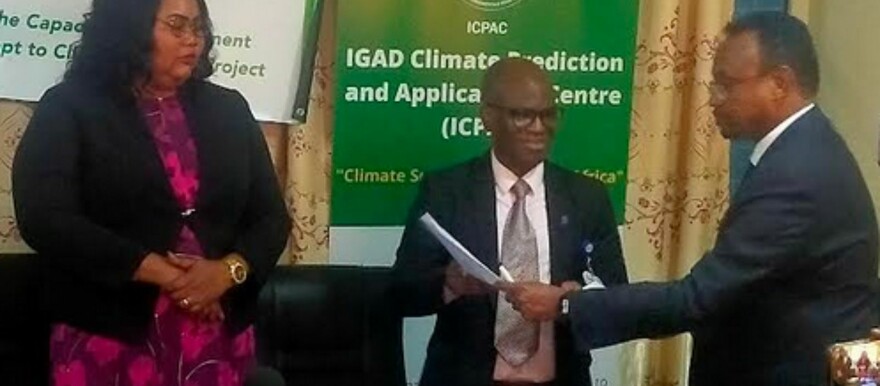The Ministry of Environment and Forestry in collaboration with UNDP and the IGAD Climate Prediction and Applications Centre (ICPAC) on Monday launched the South Sudan National Climate Early Warning System.
Speaking during the launch of the project in Juba, Environment Minister Josephine Napwon Cosmos said over two million South Sudanese have been affected by the impacts of climate change which have left many food insecure.
“The climate crisis is worsening in South Sudan and over two million people are internally displaced due to flooding, droughts, heat waves, and a hazardous rain pattern resulting in crop failures, and currently over 60 percent of our people are now categorized as food insecure,” she said.
She said South Sudan will use the early warning system to provide timely metrological information to alert citizens on climate hazards such as floods, droughts, heat waves, and storms to enhance the country`s disaster preparedness.
The National Early Warning System is a USD 10 million two-year project and will use geospatial applications to provide climate information services and risk communication for the country.
For his part, Joseph Africano Bartel, the undersecretary at the environment ministry, said the project aims to strengthen the capacity of the government and the communities in South Sudan to adapt to the impacts of climate change.
“As a country, we did not have a system to alert our people about these calamities,” he said. “With this project, we are now very happy that ICPAC will build the capacity of the metrological department and also provide equipment and training for the staff so that we will be able to give our people information, send alerts, predict weather patterns and inform them about any hazards that happening.”
Africano added that the project will provide for capacity building, construction of metrological stations in strategic locations, and setting up of resilience projects in drought-prone areas like Terekeka in Central Equatoria and Kapoeta in Eastern Equatoria State.
He said the project will also include the construction of a field for water harvesting and the introduction of short-rotation seedlings among others.
Meanwhile, Jully Ouma, a Hydro-Met Expert at ICPAC, said the early warning system will see the country have several systems that can be used to monitor hazards and will link South Sudan to the other regional bodies.
“This can also be linked to what is at the regional level and there can be a customized section just for South Sudan where with permission they can upload their data, and share their information freely to reach a wide audience and there will also be capacity building on how to use this system,” he said.




